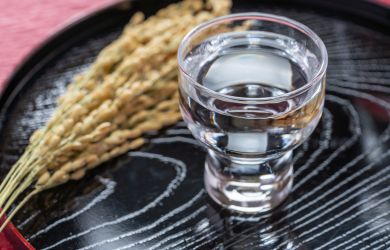
September 3, 2009
Sushi Etiquette
Some tips on what to do - and what not to do - when you belly up to the counter
By Metropolis
Originally published on metropolis.co.jp on September 2009
If you are worried about the cost of your meal, ask when making reservations what the average price is for an omakase (tasting) course. If you arrive without reservations, it’s best to ask before you sit down.
An obvious but oft-broken rule—especially when sitting at the counter—is that you should be a considerate diner. This means remembering that you’re not only sharing the space with other guests, but you are also sharing the chef. Avoid excessive noise and boisterous behavior.
If you are going to order piece-by-piece instead of asking for an omakase course, it’s a good idea to familiarize yourself with what fish are in season at that time of year. In the spring, ask for katsuo (bonito); a fantastic summertime fish is iwashi (sardine); in the fall, sanma (Pacific saury) is at its peak; and wintertime is perfect for kanburi (winter yellowtail).
Alternately, you can converse with the chef about shun, or seasonal items. Some fish, like salmon, maguro, anago, hamachi, and ika, are available year-round thanks to imports and farming operations.
Eat sushi with your fingers, not chopsticks. That’s what the oshibori is for!
Gari, the pickled ginger, is used as a palate cleanser. This should never be placed on top of a piece of sushi and eaten.
At some restaurants, the chef will season each item for you, so there’s no need to dip the sushi into soy sauce. If you decide that you do need shoyu, lightly dip a part of the fish side into the soy and put the whole piece in your mouth. Be careful not to dip the rice into the shoyu—it not only soaks up too much soy, but also will often fall apart.
The only other “rule” that comes with dining at a sushi restaurant is that you do not get drunk here—there are many other places available for that. It’s not a good idea to linger.
Very few independent sushi restaurants are open on Sundays. A safe bet is to visit department stores or hotels on Sundays or holidays when Tsukiji is closed. Don’t worry about freshness—hotel sushi restaurants and depachika counters will have good-quality sushi all year long. And, in fact, some fish taste better after they sit around for a day or two.







